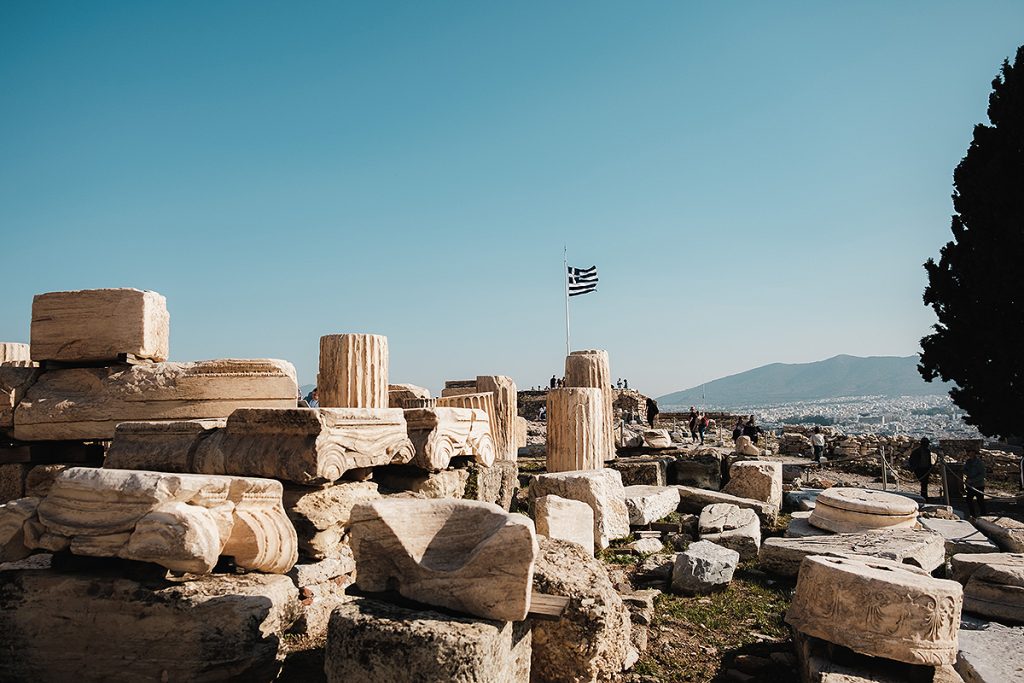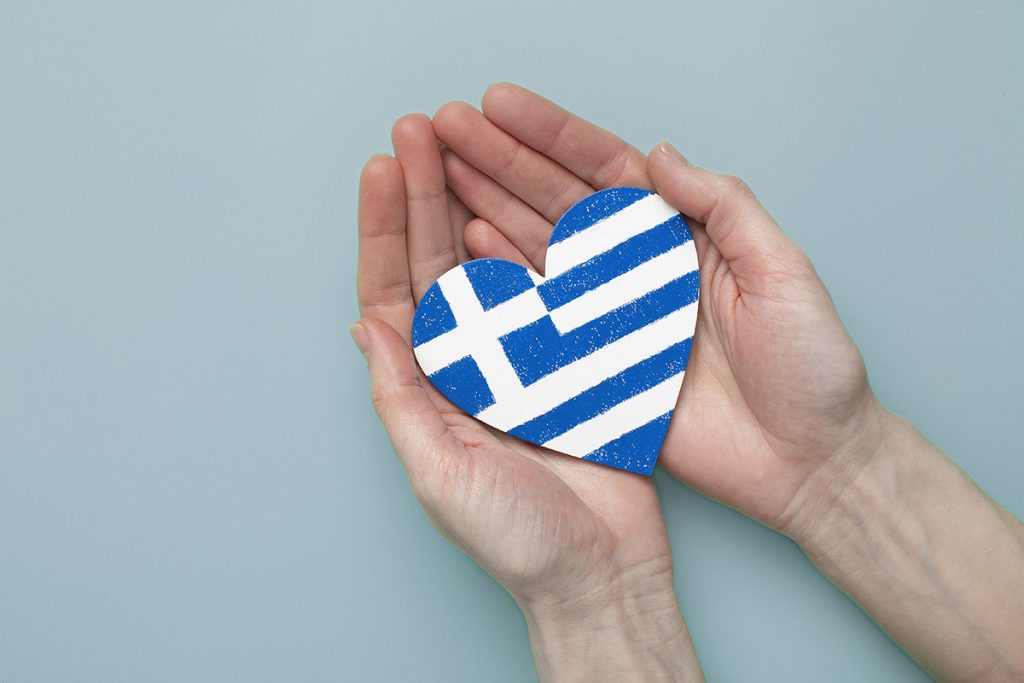Embrace love the ancient Greek way

Losts of people fantasize in advance about a perfect Valentine’s Day. Which according to them and others is the ultimate day of love. But what is love precisely? There is certainly no unequivocal answer to this question. That is exactly why the ancient Greek civilization had six different words to describe love. If you know these kinds of love too, it could change your life.
Just let us compare all these possible love types with coffee. The coffee culture we have today has an incredibly sophisticated vocabulary. For example, would you like an espresso, a cappuccino, a latte or perhaps a delicious caramel macchiato iced coffee?
The rudeness of just one single word for love!
Well, those good old Greeks were just as sophisticated in the way they were talking about love. Because they recognized no less than six different variants! Therefore they would certainly have been shocked today at our rudeness in using just a single word.
Whose were the six types of love that the Greeks precisely recognized, and in what ways can they motivate us in the present to transcend our over-reliance on romantic love? Where most young people aspire to find a one-of-a-kind soulmate who can fulfill all of their distinct emotional requirements, yet often fall short.

These are the six types of love according to the ancient Greeks
1. Eros, or a sexual passion
The initial manifestation of love took the form of Eros, which was inspired by the renowned Greek deity associated with procreation. Eros symbolized the concept of intense sexual longing and attraction. But, unlike as we tend to do today, the ancient Greeks did not always regard this as a positive thing.
In fact, Eros was rather seen as a dangerous, fiery and irrational form of love that could grab and possess you. It brought with its feeling of love a loss of control that frightened the ancient Greeks quite a bit. This seems a bit strange, because losing this control is exactly what many people are looking for in a relationship nowadays. Because don’t we all hope that we fall madly and deeply in love?

2. Philia, or a deep friendship
Philia, which was the second form of love, centered around companionship and friendship. Unlike the primal sexuality of Eros, the Greek culture held a higher regard for Philia. The reason for this was that Philia pertained to a profound bond of camaraderie between individuals. It entailed exhibiting fidelity to your companions, selflessly giving of yourself for their benefit, and revealing your genuine emotions to them.
We can all wonder how much of the amicable Philia we truly possess in our lives now. This is an important question contemporary era, where we primarily aim to accumulate ‘followers’ on a social media platform like Twitter or ‘friends’ on Facebook. The ancient Greeks would have scarcely been impressed by these contemporary feats.
3. Ludus, or a playful love
Ludus was a Greek concept of affection that emphasized playfulness. It referred to the fondness shared between young lovers or children. We have all experienced Ludus through playful flirting and teasing during the early stages of a relationship. Ludus is also present in our social interactions when we chat with strangers in a bar or share a laugh with friends, or even when we engage in group dancing.
Engaging in dance with unfamiliar individuals can be an exceptionally enjoyable pastime, almost serving as a lighthearted alternative to a sexual activity. Although societal conventions may frown upon this kind of adult levity, incorporating a bit more Ludus into our daily routine could be precisely what some people require to add excitement to their romantic relationships.

4. Agape, or the love of all
Agape, which was the fourth type of love and possibly the most revolutionary, denoted an altruistic form of affection. It was a love that encompassed all individuals, regardless of their relationship to you. Regardless of whether they were family members or unfamiliar acquaintances, Agape was translated into Latin as Caritas. Consequently, this is the derivation of the term ‘charity’ that we use today.
There is increasing evidence that this Agape is in dangerous decline in many countries. This is because the level of empathy in Western countries has fallen sharply within the past forty years. We should therefore urgently revive our ability to care for strangers.
5. Pragma, or a long-lasting love
Pragma, which was another form of love in ancient Greece, pertained to a profound comprehension that matured between long-term married partners. Pragma revolved around making sacrifices and compromises to maintain the relationship over time, as well as displaying patience and tolerance.
Essentially, Pragma entails actively being in love by putting forth a sincere effort to give love rather than solely receiving it. Considering the high rates of divorce or separation in our modern lifestyle, the ancient Greeks would likely suggest that we incorporate a substantial amount of Pragma into our valuable relationships.

6. Philautia, or the love for yourself
The sixth kind of love of the ancient Greek civilization was Philautia or self-love. And those clever Greeks realized that there were even two kinds of this self-love. One was an unhealthy variety associated with narcissism in which you became self-obsessed. And are solely focused on personal fame and fortune.
Nevertheless, an improved rendition of love expands your overall capacity to love. This variant is based on the notion that if you love and feel secure within yourself, you will possess an ample amount of affection to bestow upon others. This idea corresponds with the Buddhist-inspired notion of ‘self-compassion’.

Embrace love the ancient Greek way conclusion
We could learn a lot from the ancient Greek civilization about the sophisticated understanding of love and how to cultivate them in our relationships. The ancient Greeks identified diverse forms of love in various connections with a broad range of individuals, including friends, family, partners, unfamiliar people, and even oneself.
This is in stark contrast to our current typical focus on a single romantic relationship. A relationship in which we surely hope to find all these different kind of loves wrapped up in a single person or soulmate. Or let’s just call this: the ultimate Valentine’s Day packaging or living relationship gift!
So, the next time it is Valentine’s Day, or you might have a new exciting date. Let us imagine to celebrate love in all its forms and remember that there’s more to it than just Eros! In this way we can create more fulfilling and meaningful connections.




















